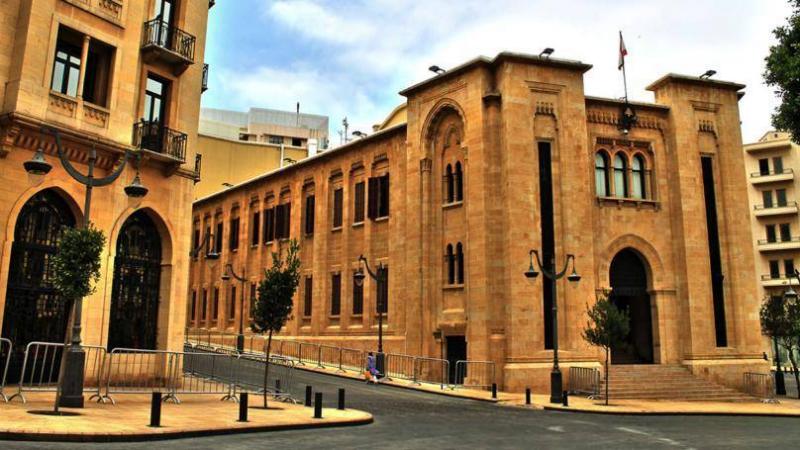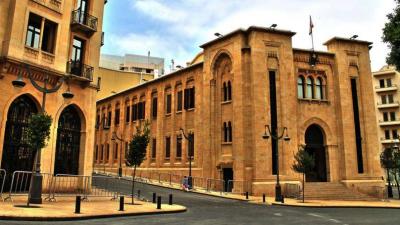The parliamentary committees held a joint session in the parliament, chaired by Deputy Speaker Elias Bou Saab, with the presence of Minister of Finance in the caretaker government, Youssef Khalil, Deputy Prime Minister Saadeh Al-Shami, and a large number of deputies. Bou Saab stated after the session: "Today, after the efforts of the 13th session, we have concluded the discussion on the capital control project. It has undergone extensive discussion and significant amendments. We approved articles 11, 12, 13, and 14, which stipulate fines and penalties for anyone who violates the implementation of this law, and article 12, which contains an important clause regarding depositors and their rights concerning lawsuits against banks, including those lawsuits taking place outside Lebanon.
From the consensus we reached, we came up with two formulations: the first proposed is to eliminate the article, and the second states that in this article, and in order to protect the rights of depositors, contrary to the way the article was originally proposed, they maintain the right to file complaints during the enforcement of this law. With such a proposal, the enforcement of this ruling is suspended." He added: "We reduced the law's validity period from two years to one year, taking into consideration the rights of depositors, and we adopted the second formulation. Colleague Michel Moawad asked why we don't include both formulations, and this issue was accepted. We will present the matter to the General Assembly and will compile a report on capital control, and consensus has been reached. In this law, we must consider the complete picture to be able to exit the deadlock of the economic crisis. In the report, we can include recommendations. We finished the discussion and hope to conclude the discussions with the laws of the Finance and Budget Committee."
He continued: "There is a clear recommendation from the joint committees that the laws be studied in conjunction with each other, and this is a conviction. We aim to expedite the approval of other laws, including financial regulation and restructuring banks." He stated: "I am optimistic that the economic crisis has a solution, and we need to legislate laws in a rational manner and preserve our banks. When banks close, we lose everything. There are complications, and I emphasize that these funds are depositors' funds; we placed them with banks, and the Banque du Liban financed budgets. The state has responsibilities, and it must bear its responsibilities. The state has ways to make real investments and develop a plan. There is importance in the plan being discussed, and there are innovative ideas we can work on to bring back the depositors’ funds."
He further stated: "What I want to say is that the discussion that took place was beneficial, and this is a recommendation if we move to the General Assembly. The approval of capital control took 13 sessions, and I thank all the colleagues in parliament; we have reached a result. Everyone sees that this is the best possible outcome." Bou Saab addressed what happened at the Port of Beirut, noting that "the judiciary is paralyzed, and there is significant resentment among all Lebanese regarding how the issue is being handled. The Supreme Judicial Council has a responsibility, and I urge the Supreme Judicial Council to propose names of judges. It is stagnant because there is no General Assembly. What is happening is an injustice towards the detainees. Among the detainees there are those with foreign nationalities, so do not wait for external pressure. Therefore, it is important to shed light on this matter, and the judiciary must handle it differently."




